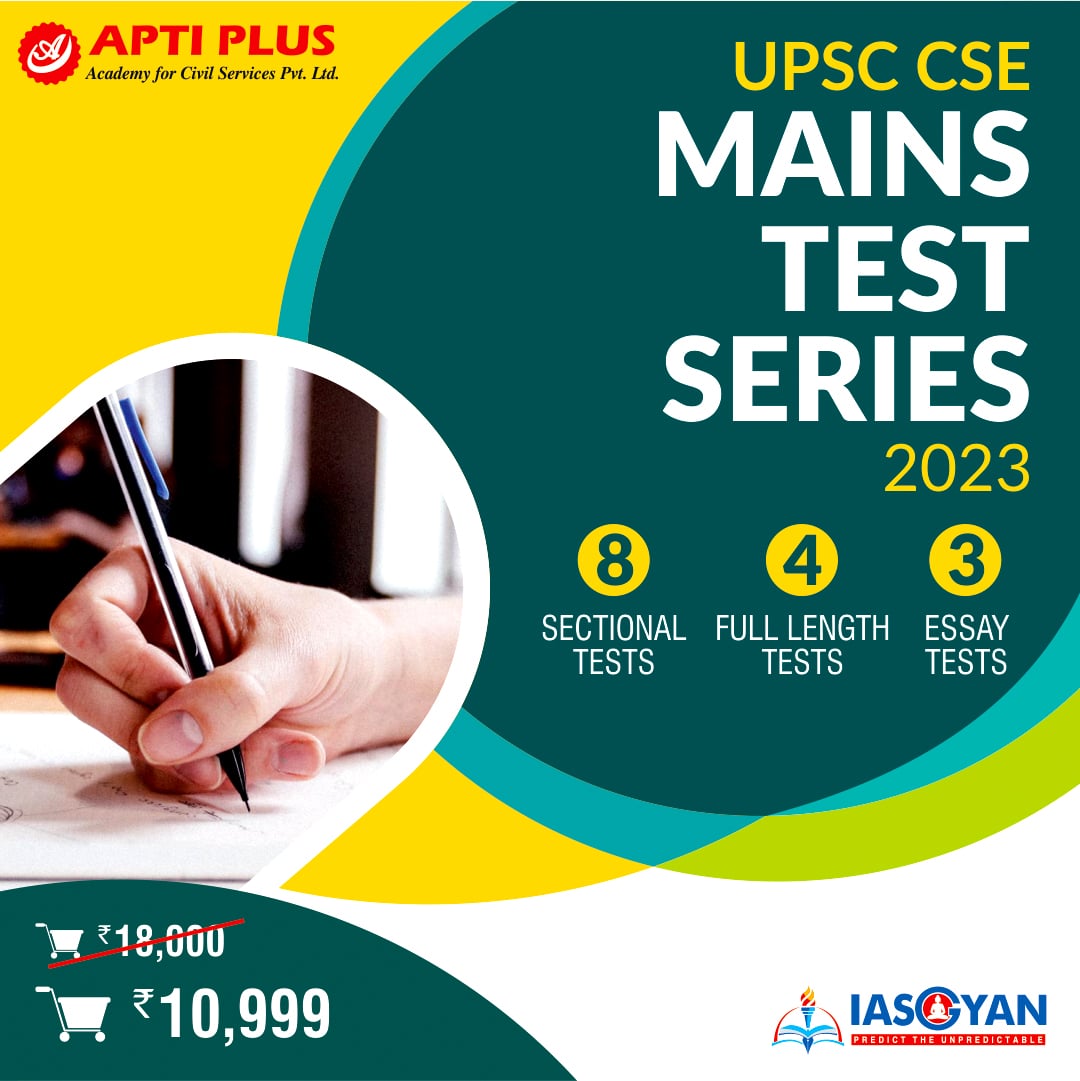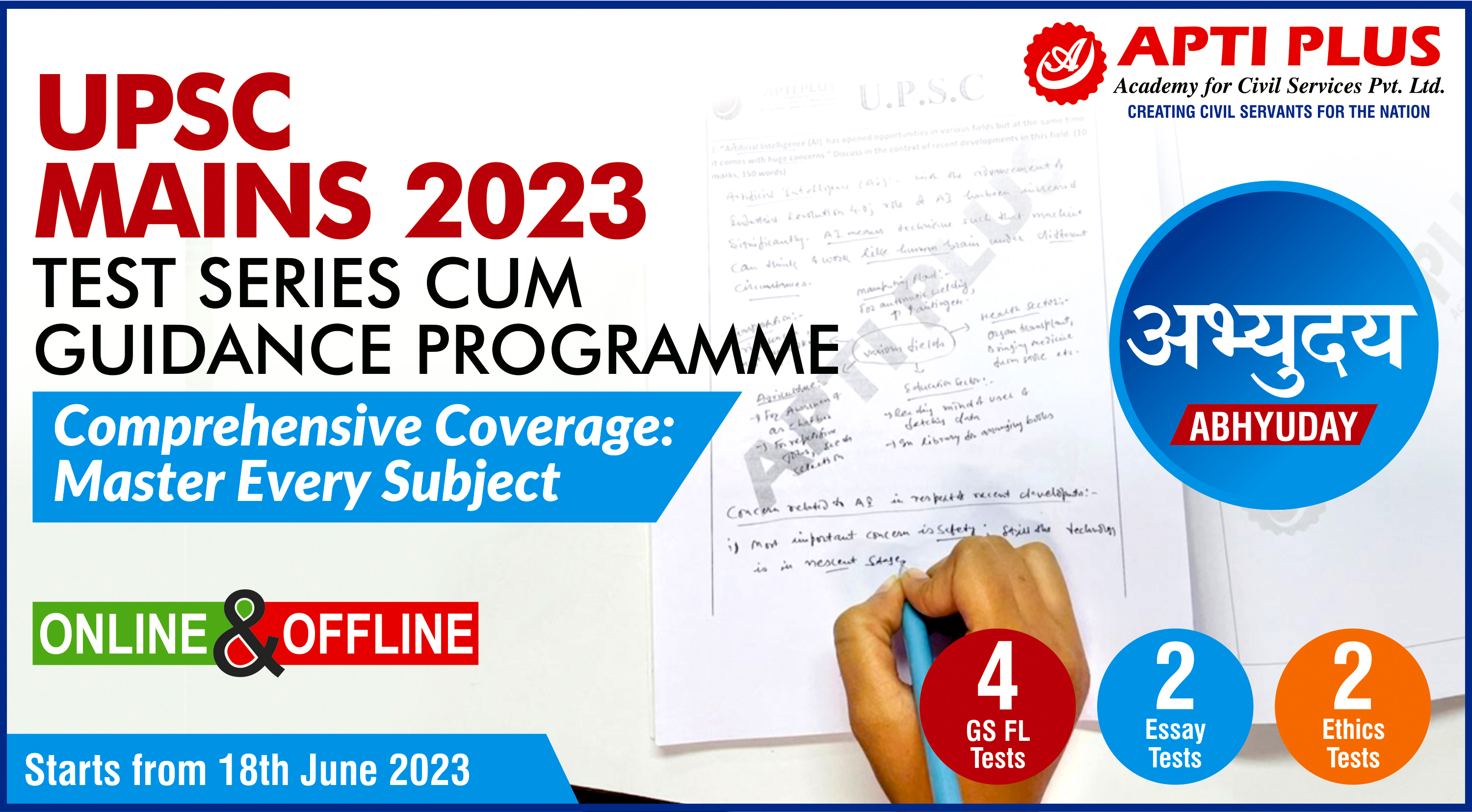Description
.png)
Copyright infringement not intended
Context: In a significant step towards strengthening the anti-doping movement in South Asia, the National Anti-Doping Agency, India (NADA India) and the South Asia Regional Anti-Doping Organization (SARADO) signed a Memorandum of Understanding (MoU). The MoU aims to enhance regional cooperation and coordination in the fight against doping in sports.
Details
- The MoU was signed by the Director General of NADA India, and the Chairman of SARADO, in the presence of the Minister of Youth Affairs and Sports, Government of India, and other dignitaries.
- The MoU will be valid for a period of three years and will cover various aspects of anti-doping education and prevention.
- India has been playing an active role in the global anti-doping movement and has been contributing to the World Anti-Doping Agency (WADA) and the UNESCO International Convention against Doping in Sport.
- India is also a member of the WADA Executive Committee and Foundation Board. The MoU reflects India's willingness and strong intent to be involved in furthering the anti-doping movement in South Asia and beyond.
The MoU aims to fulfil the following objectives:
- Developing an anti-doping education and prevention program in South Asia that will target athletes, coaches, support personnel, medical professionals, media, parents, teachers and students.
- Training and upskilling sample collection personnel, educators and other anti-doping education officers on the latest anti-doping rules, procedures and best practices.
- Organizing courses, seminars, workshops, research and exchange tours on anti-doping education and prevention to share knowledge, experience and expertise among the SARADO member countries.
- Facilitating the exchange of education officers, program managers, trainers, teachers and specialists on anti-doping education and prevention to foster mutual learning and collaboration.
- Supporting anti-doping education activities and exchanging services with experts to provide technical assistance and guidance to the SARADO member countries.
- Producing anti-doping education literature such as brochures, posters, leaflets, newsletters, videos and online materials to raise awareness and promote clean sport.

National Anti-Doping Agency (NADA)
About
- The National Anti-Doping Agency (NADA) is India's national organisation responsible for promoting, coordinating, and monitoring the doping control programme in sports in all its forms.
- Doping is the use of prohibited substances or methods by athletes to enhance their performance, which is considered unethical and harmful to the spirit of sports.
- It aims to ensure clean sports practices and create anti-doping education and awareness among athletes, coaches, support staff, and the general public.
- It was established in 2009 as an autonomous agency under the Ministry of Youth Affairs & Sports, Government of India.
- It is the apex body to implement anti-doping rules and policies that conform to the World Anti-Doping Agency (WADA), the international organisation that oversees anti-doping efforts worldwide.
- It cooperates with other anti-doping organisations, such as the National Dope Testing Laboratory (NDTL), the Indian Olympic Association (IOA), and the South Asian Regional Anti-Doping Organisation (SARADO).
Features
- NADA conducts in-competition and out-of-competition testing of athletes across various sports disciplines, both at national and international levels.
- It maintains a list of prohibited substances and methods based on the WADA Prohibited List, which is updated annually.
- It manages the results of the doping tests and imposes sanctions on athletes who violate the anti-doping rules.
- It provides therapeutic use exemptions (TUEs) to athletes who have a legitimate medical need to use a prohibited substance or method.
- It conducts anti-doping education and awareness programmes for athletes, coaches, support staff, and the general public through various media platforms and events.
- It promotes anti-doping research and development to enhance the scientific and technical aspects of doping detection and prevention.
Significances
- NADA ensures a level playing field for all athletes by preventing unfair advantages gained through doping.
- It protects the health and well-being of athletes by discouraging the use of harmful substances or methods that can have adverse effects on their physical and mental health.
- It upholds the integrity and values of sports by fostering a culture of honesty, respect, and fair play among all stakeholders.
- It enhances India's reputation and credibility in the global sports arena by demonstrating its commitment to clean sports practices and compliance with international standards.
- It contributes to India's social development by inspiring young people to pursue sports as a healthy and positive lifestyle choice.
Challenges
- The lack of adequate resources and infrastructure to conduct effective and efficient testing and analysis of samples.
- The low level of awareness and knowledge about anti-doping rules and regulations among athletes, coaches, support staff, and the general public.
- The prevalence of doping culture and practices in some sports disciplines or regions is influenced by peer pressure, social norms, or economic incentives.
- The difficulty in detecting new or emerging substances or methods that are designed to evade detection or mask doping.
- The legal and administrative hurdles in imposing sanctions or appealing against decisions in cases of doping violations.
NADA needs to adopt a holistic and proactive approach that involves various strategies
- Increasing its budgetary allocation and manpower to expand its testing and analysis capacity and coverage.
- Enhancing its coordination and collaboration with other anti-doping organisations, both at national and international levels, to share information, expertise, and best practices.
- Developing a comprehensive and tailor-made anti-doping education and awareness curriculum for different target groups, using innovative and interactive methods such as online courses, mobile apps, games, quizzes, etc.
- Encouraging a zero-tolerance attitude towards doping among athletes, coaches, support staff, and the general public through campaigns, incentives, awards, etc.
- Adopting a risk-based approach to identify high-risk sports disciplines or regions and prioritise testing and monitoring accordingly.
- Investing in anti-doping research and development to keep pace with the evolving trends and technologies in doping detection and prevention.
NADA is a vital institution for India's sports sector that strives to ensure clean sports practices and create anti-doping education & awareness. By overcoming its challenges and implementing its strategies, NADA can achieve its vision of making India a doping-free nation in sports.

Conclusion
- The MoU is expected to benefit the SARADO member countries namely Afghanistan, Bangladesh, Bhutan, Maldives, Nepal and Sri Lanka by providing them with access to NADA India's resources, expertise and experience in anti-doping education and prevention. It will help in creating a network of anti-doping stakeholders in South Asia who will work together to protect the rights of clean athletes and uphold the spirit of fair play.
Must-Read Articles:
DOPING: https://www.iasgyan.in/daily-current-affairs/doping
|
PRACTICE QUESTION
Q. What are the consequences of committing an anti-doping rule violation (ADRV)?
1. Disqualification from the event or competition
2. Suspension or ban from the sport
3. Loss of medals, prizes, or records
Which of the following Statement is/are correct?
(A) 1 and 2 only
(B) 2 and 3 only
(C) 1 and 3 only
(D) 1, 2 and 3
Answer: D
Explanation: An athlete who commits an ADRV may face various consequences, such as disqualification from the event or competition; suspension or ban from the sport; loss of medals, prizes, or records; damage to reputation and career; health risks; etc.
|
https://pib.gov.in/PressReleasePage.aspx?PRID=1937040




.png)
.png)








